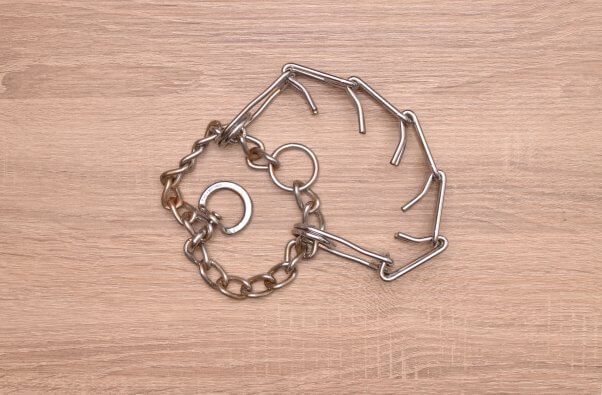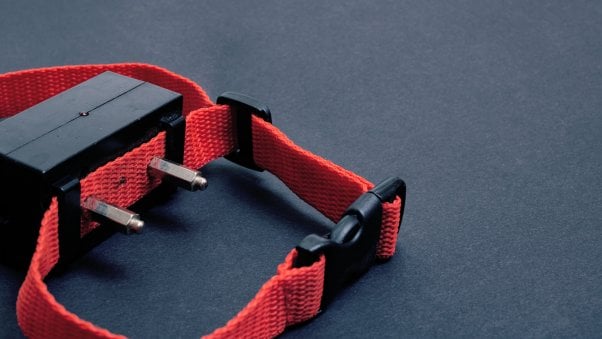Stop Hurting Your Dog: Throw Out Prong, Choke, and Shock Collars
Tamar Geller is a dog trainer to the stars, including Oprah Winfrey, Ben Affleck, and Natalie Portman. She believes in empowering dogs to be the best they can be while building relationships with their guardians based on mutual devotion and love. The key to successful dog training lies in understanding dogs’ emotions and motivations—not torture devices.
Training should be a positive and compassionate experience for both dogs and their guardians. Through clear communication, consistency, love, and understanding, Geller encourages dog guardians to establish strong bonds of trust with their animal companions while fostering their good behavior and happiness.
Stop Hurting Your Dog!
Last year, a couple in Singapore did an experiment: Each person tried on a shock collar and a prong collar to see what they felt like. They summed it up as follows:
I expected it to be uncomfortable but I had no idea how painful it would really be. I had to remove the shock collar immediately for fear of being shocked again. It’s not just the physical pain that’s scary. The anticipation and not knowing when you will be shocked again is actually worse than the physical pain.
And the prong collar left red marks around the man’s neck, even though he hadn’t forcefully tugged or yanked on it.
Not only do shock, prong, and choke collars cause pain, dogs have also died as a result of wearing these devices. A dog was apparently strangled to death by a Wisconsin trainer using a choke collar, and at an “elite” Manhattan doggie daycare, a dog was found strangled and hanging from a choke collar.
Try to imagine metal prongs working their way into your neck. That has happened to countless dogs, including Roc, who was found in South Carolina with a prong collar embedded deeply into his skin, and Rocky, who was found with a choke chain embedded at least an inch into his neck.
Even when dogs don’t sustain serious or fatal injuries as a result of wearing these collars, they’re often traumatized by them. A Melbourne, Florida, K-9 named Canto apparently suffered from severe psychological trauma and sustained injuries to his neck from the “prolonged overuse” of an electric shock collar. A Pennsylvania woman said that her dog “completely withdrew and isolated and … he looked broken” after being shocked at a boarding kennel.
Ethicist Dr. Marc Bekoff explains why it’s wrong to use shock collars:
There simply is no reason to cause pain to teach dogs how to live with us. Mutual respect and tolerance go a long way in developing and maintaining positive relationships between dogs and humans, and it’s surely not at all shocking to know that dogs don’t want to be shocked into submission or fear. Who would?
If you’re using a shock, prong, or choke collar, please stop immediately. Humane harnesses are available, and in fact, many companion animal supply stores rightfully refuse to sell painful collars.
Geller’s unwavering dedication to improving the lives of dogs is a testament to the transformative power of love, patience, respect, and empathy. So take her advice: If you’re working with a trainer who wants to use any of these horrible devices, take your dog and run! Here are some tips on choosing an ethical trainer and additional information on collar safety.






